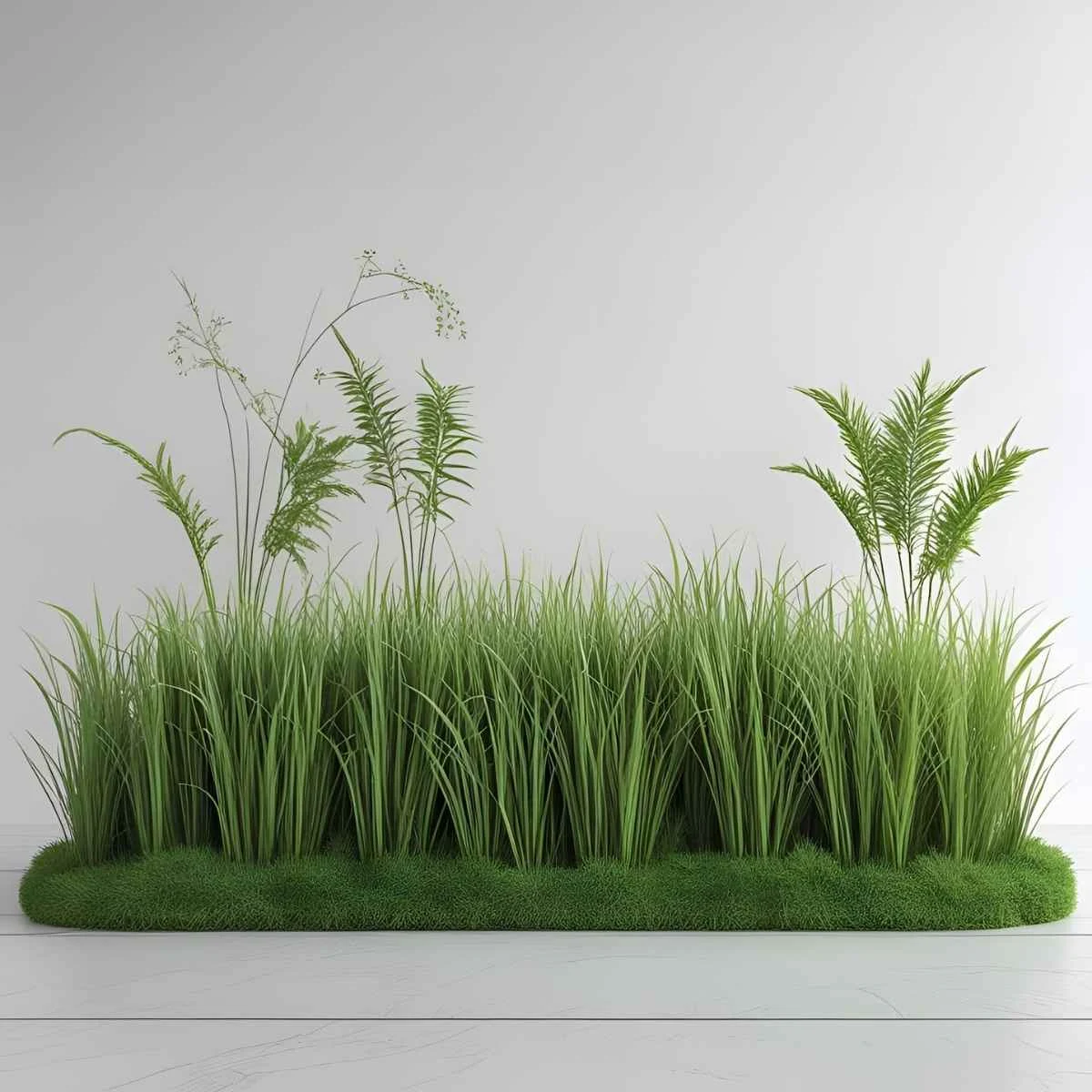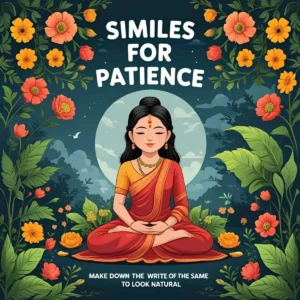The Lush Charm of Similes 🌿
Similes are like sunlight filtering through trees, casting vivid comparisons that make language bloom. By using “like” or “as,” they transform simple descriptions into vibrant images, turning “The grass was soft” into “The grass lay like a velvet quilt, cradling every step.” For grass—nature’s humble carpet—similes evoke its texture, resilience, and beauty, making writing and speech more relatable and poetic.
Whether in a poem, a story, or a casual chat, these comparisons bring fields to life. Ever noticed how grass seems to whisper its own story? Let’s explore 25 unique similes for grass, sorted by theme, to inspire your creativity! 🌄
Similes for Grass: 25 Vivid Comparisons
These 25 similes capture grass in its many roles—as a soft blanket, a resilient survivor, or a cultural symbol. Organized into thematic groups, each simile includes a meaning, a contextual example, and a specific application for writing, speaking, or reflection. Let’s wander through this green gallery!
Grass as Nature’s Embrace 🌾
Similes for grass’s softness, comfort, or natural beauty.
- Grass lies like a velvet quilt, cradling every step.
Meaning: Grass feels soft and comforting, like a plush quilt underfoot.
Example: In a picnic scene, “The grass lay like a velvet quilt, inviting us to sprawl with our sandwiches.”
Application: Use in a travel blog or poem to describe a cozy outdoor moment, e.g., “The meadow’s velvet quilt cushioned our hike.” - Grass sways like a dancer, twirling in the breeze.
Meaning: Grass moves gracefully with the wind, like a dancer in motion.
Example: In a nature poem, “The grass swayed like a dancer, twirling to the wind’s soft tune.”
Application: Perfect for poetic descriptions or a journal entry about a windy day. - Grass sparkles like emeralds, gleaming under dew.
Meaning: Grass shines with morning dew, like polished gems.
Example: In a sunrise scene, “The grass sparkled like emeralds, kissed by the dawn’s first light.”
Application: Use in a photography caption or a story about early mornings. - Grass cushions like a sponge, softening every fall.
Meaning: Grass absorbs impact gently, like a sponge soaks up water.
Application: Great for a sports story or a parenting blog about kids playing, e.g., “The grass cushioned my toddler’s tumble like a sponge.”
Example: In a playground scene, “The grass cushioned like a sponge as the kids tumbled with laughter.” - Grass whispers like a lullaby, soothing the soul.
Meaning: Grass rustles gently, calming like a soft song.
Example: In a reflective essay, “The grass whispered like a lullaby, easing her worries by the river.”
Application: Use in mindfulness writing or a meditation class description.
Grass as a Resilient Spirit 💪
Similes for grass’s durability and ability to thrive under pressure.
- Grass stands like a soldier, unyielding after storms.
Meaning: Grass remains firm despite adversity, like a steadfast soldier.
Example: In a storm aftermath scene, “The grass stood like a soldier, unbroken by the night’s fierce winds.”
Application: Use in a motivational speech or blog about resilience, e.g., “I stood like grass through life’s storms.” - Grass bounces like a spring, rising after every step.
Meaning: Grass rebounds quickly, like a spring snapping back.
Example: In a soccer game story, “The grass bounced like a spring, ready for the next sprint.”
Application: Perfect for sports writing or a tweet about recovery. - Grass endures like a phoenix, reborn after drought.
Meaning: Grass regrows after hardship, like a phoenix rising from ashes.
Example: In a gardening blog, “The grass endured like a phoenix, greening again after weeks of heat.”
Application: Use in an environmental essay or a post about overcoming challenges. - Grass clings like a survivor, rooting through cracks.
Meaning: Grass persists in tough conditions, like a survivor holding on.
Example: In an urban story, “The grass clung like a survivor, sprouting through city pavement.”
Application: Great for a city planning article or a speech about tenacity. - Grass thrives like a rebel, defying barren soil.
Meaning: Grass grows boldly in harsh places, like a rebel defying odds.
Example: In a desert scene, “The grass thrived like a rebel, claiming the sandy dunes.”
Application: Use in a nature documentary script or a journal about persistence.
Grass as an Emotional Canvas 🌈
Similes for grass’s role in evoking feelings or memories.
- Grass is a memory book, holding childhood’s barefoot days.
Meaning: Grass evokes nostalgic memories, like pages in a cherished book.
Example: In a memoir, “The grass was a memory book, holding my summer races with friends.”
Application: Use in a personal essay or a family story about nostalgia. - Grass hums like a friend, comforting with its rustle.
Meaning: Grass’s sound feels familiar and soothing, like a friend’s voice.
Example: In a camping scene, “The grass hummed like a friend, easing us into sleep under the stars.”
Application: Perfect for a travel journal or a speech about nature’s comfort. - Grass glows like hope, brightening barren moments.
Meaning: Grass symbolizes optimism, like a light in dark times.
Example: In a reflective poem, “The grass glowed like hope, sprouting after the flood.”
Application: Use in inspirational writing or a social media post about renewal. - Grass cradles like a mother, softening life’s falls.
Meaning: Grass offers gentle support, like a nurturing parent.
Example: In a childhood story, “The grass cradled like a mother as we rolled down the hill.”
Application: Great for parenting blogs or a eulogy about comforting memories. - Grass weaves like a storyteller, spinning tales of the earth.
Meaning: Grass carries nature’s narratives, like a storyteller’s words.
Example: In a folklore tale, “The grass wove like a storyteller, whispering ancient secrets.”
Application: Use in creative writing or a cultural event speech.
Grass in Everyday Scenes 🌳
Similes for grass in daily life, from parks to backyards.
- Grass tickles like a feather, teasing bare feet.
Meaning: Grass brushes lightly against skin, like a feather’s touch.
Example: In a backyard scene, “The grass tickled like a feather, making the kids giggle.”
Application: Use in a family vlog or a caption about summer fun. - Grass sprawls like a carpet, welcoming every picnic.
Meaning: Grass spreads invitingly, like a carpet for gatherings.
Example: In a park story, “The grass sprawled like a carpet, ready for our barbecue.”
Application: Perfect for a community newsletter or an Instagram picnic post. - Grass waves like a crowd, cheering the breeze.
Meaning: Grass moves in unison with the wind, like a crowd waving.
Example: In a field trip scene, “The grass waved like a crowd, cheering the spring breeze.”
Application: Use in a school trip report or a tweet about nature outings. - Grass is a canvas, painted with morning dew.
Meaning: Grass displays dew like art on a canvas.
Example: In a gardening blog, “The grass was a canvas, painted with dew’s sparkling strokes.”
Application: Great for a photography blog or a morning walk journal. - Grass rustles like a gossip, sharing the wind’s secrets.
Meaning: Grass makes lively sounds, like a gossip spreading news.
Example: In a countryside scene, “The grass rustled like a gossip, spilling the breeze’s tales.”
Application: Use in a humorous story or a chat about nature’s sounds.
Grass as Cultural Roots 🌍
Similes inspired by cultural or historical imagery of grass.
- Grass sings like a bard, chanting earth’s ancient songs.
Meaning: Grass carries timeless stories, like a bard’s poetic verses.
Example: In a cultural festival, “The grass sang like a bard, echoing ancestral hymns.”
Application: Use in a heritage essay or a speech about cultural landscapes. - Grass weaves like a tapestry, threading nature’s history.
Meaning: Grass intertwines past and present, like a tapestry’s threads.
Example: In a historical novel, “The grass wove like a tapestry, linking the prairie to pioneer days.”
Application: Perfect for a history blog or a cultural event post. - Grass stands like a sentinel, guarding sacred grounds.
Meaning: Grass protects meaningful places, like a sentinel at a post.
Example: In a travel memoir, “The grass stood like a sentinel, guarding the temple’s ancient stones.”
Application: Use in a travelogue or a speech about sacred sites. - Grass dances like a festival, celebrating life’s rhythm.
Meaning: Grass moves joyfully, like dancers at a cultural festival.
Example: In a village scene, “The grass danced like a festival, swaying to the drum’s beat.”
Application: Great for a cultural blog or a post about community celebrations. - Grass is an oracle, whispering earth’s wisdom.
Meaning: Grass conveys profound insights, like an oracle’s prophecies.
Example: In a spiritual story, “The grass was an oracle, whispering truths to the barefoot monk.”
Application: Use in a philosophical essay or a meditation retreat description.
Creative Examples to Inspire Wonder 🌼
These similes paint grass as a living, breathing part of our world. “Grass sways like a dancer” captures a meadow’s grace, perfect for a poetic Instagram caption. “Grass is a memory book” evokes barefoot summers, ideal for a nostalgic essay. Ever seen grass as an “oracle”? Try it next time you’re in a park, listening to its rustle. Which simile feels like your favorite green space—does grass cradle like a mother or sparkle like emeralds?
Try This: Pick a simile and write a sentence about your last outdoor moment, like “The grass tickled like a feather on my hike.” Share it in a journal or with a friend!
Practical Applications for Every Voice ✍️
These similes can enrich your communication:
- Poetry: Use “grass whispers like a lullaby” to craft serene lines, e.g., in a poem about a quiet meadow.
- Stories: Add “grass bounces like a spring” to a sports tale, showing a field’s resilience.
- Speeches: Say “We stand like grass, unyielding through storms” in a motivational talk about perseverance.
- Social Media: Post “Grass sparkles like emeralds this morning! 💎” for a sunrise photo caption.
- Everyday Chats: Toss “The grass was a velvet quilt at our picnic!” into a family group chat for fun.
Challenge: Rewrite a dull sentence from your day with a simile, like “The lawn was green” to “The lawn sprawled like a carpet, begging for a picnic.” Notice the spark it adds!
Conclusion: Let Grass Inspire Your Words 🌞
Similes are your brush to paint grass’s magic—its softness, strength, and stories. From “velvet quilts” cradling picnics to “oracles” whispering wisdom, these comparisons make fields unforgettable. So, try one out—maybe “My backyard’s grass dances like a festival!” in your next post. Better yet, craft your own: is grass your “canvas” for dew or “sentinel” for memories? Share it in a tweet or story and watch it grow. Nature’s carpet is calling—let your words bloom! 🌳



